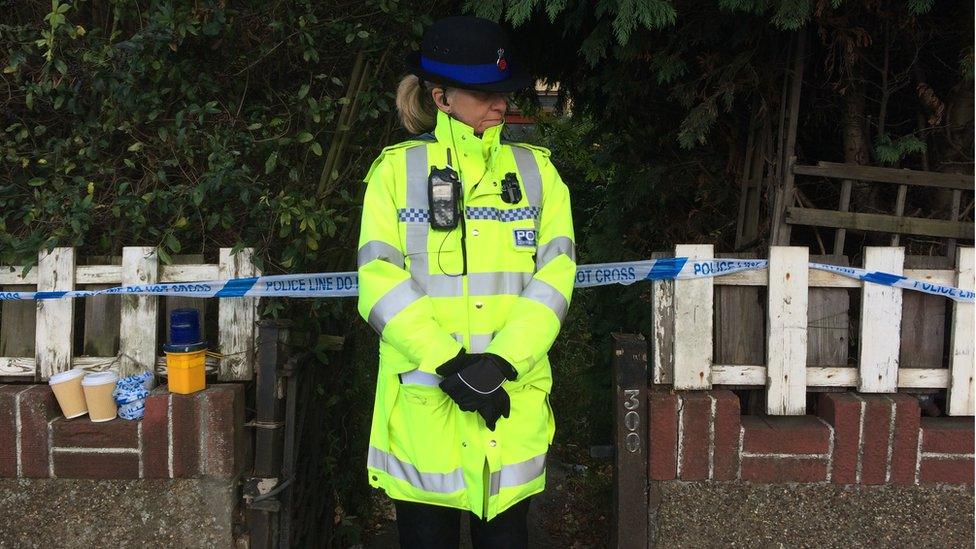Judge rules in 'extraordinary' Essex inheritance case
- Published

Police outside the bungalow of John and Marjorie Ann Scarle in October 2016
A judge has ended an "extraordinary" court battle between two stepsisters by applying a 95-year-old law.
John and Marjorie Ann Scarle were found dead in their bungalow in Leigh-on-Sea, Essex, in 2016, triggering a dispute over their £300,000 assets.
Mr Scarle's daughter Anna Winter and Mrs Scarle's daughter Deborah Cutler took their fight to the High Court.
Judge Philip Kramer ruled the Law of Property Act 1925 meant Ms Cutler should receive the whole estate.
Ms Winter's case was that forensic evidence suggested Mrs Scarle, 69, died first, resulting in her father inheriting their assets - which would then pass to her.
But Ms Cutler relied on the 1925 Act which creates a "presumption" that, as the elder of the two, Mr Scarle, 79, had died first - meaning she would inherit the assets through her mother.

The inheritance claim was taken to the High Court by the couple's two daughters
Mr and Mrs Scarle were found dead from hypothermia by police on 11 October 2016.
The court heard Ms Cutler had made a number of attempts to settle the case by dividing assets equally - at one point offering a 60-40 split in Ms Winter's favour, as well as mediation.
All were rejected by Ms Winter, the hearing was told.

The elderly couple were found dead in Eastwood Road, Leigh-on-Sea, in October 2016
Delivering his ruling, Judge Kramer said rates of decomposition could be explained by the different "micro-climates" in the toilet, where Mrs Scarle's body was found, and the lounge, where her husband was discovered.
He said the presumption in favour of the older person dying first, enshrined in the 1925 Act, external, would therefore apply.
'Stubborn intransigence'
Ms Cutler now stands to receive the entire estate. Judge Kramer ordered Ms Winter to pay £179,000 in legal costs.
James Weale, representing her, said his client could not have done any more to resolve the dispute.
"This claim should never have got to trial," he told the judge.
"She was met with stubborn intransigence on the part of (Ms Winter) who refused to make any reasonable attempt to engage in settlement negotiations at any stage."
- Published12 October 2016
